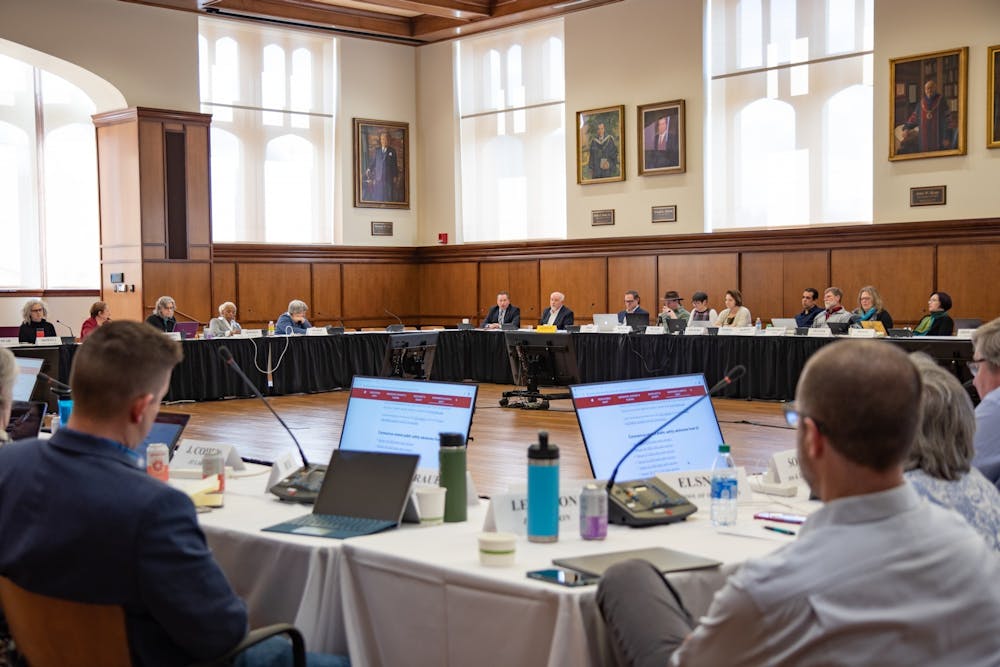The Bloomington Faculty Council is looking to increase job security for non-tenure track faculty by giving more contract options to deans and department heads.
The BFC will consider a new contract proposal for non-tenure-track faculty at its meeting Tuesday. The new proposal under consideration would recommend a new five-year rolling contract option be added to the previous three-year rolling and five-year fixed options being used by most departments.
Rolling contracts allow faculty to stay at the university for two years if their contract is not renewed. The proposed five-year rolling contract would allow faculty to stay for four years if their contract is not renewed.
“The five-year rolling that’s been proposed is a way to give NTT who want a rolling contract a little bit more job security,” J Duncan, a senior lecturer in informatics, said. “If I was on a five-year rolling contract, and they didn’t renew my contract, I would have four years left in my contract to find another job.”
University policies mandate there be long-term contracts for NTT faculty, and most units choose either a three-year rolling contract or a five-year fixed contract. The Bloomington Faculty Council hopes to extend those options on Tuesday, IU Professor Emeritus Theodore Miller said.
“As things have developed over the years, those are the two that are being used invariably,” he said. “We are trying to say those are just possibilities. There are other options that could be considered as well. The five-year rolling contracts are one of those.”
IU’s teaching faculty is divided into two main groups: tenure-track faculty and non-tenure-track faculty. Lecturers, teaching professors, clinical professors and professors of practice are NTT faculty.
Tenured faculty essentially stay in their roles indefinitely, but NTTs receive contracts for a defined period of time. Once NTT faculty are granted long-term contracts — which can take up to seven years after their initial hiring — they only receive contracts for either three or five years.
If an NTT faculty member receives a three-year contract, it’s considered a “rolling contract.” After an NTT’s first year, they undergo an annual review where their superior determines whether the university will renew their contract.
If they choose not to renew the contract, an NTT could stay at the university for two more years while they look for a new job.
“Take any given year and say your contract isn’t renewed,” said Israel F. Herrera, a senior lecturer and BFC Faculty Affairs Committee co-chair. “You will have the chance to stay for two more years to look for a job in the difficult market we have, which gives some job security.”
In the five-year fixed contract currently used at IU, NTTs undergo an annual review after their fourth year. If their contract is not renewed, they will have one year until their contract expires.
But in a five-year rolling contract, NTT faculty would have four years to look for a new job if their contract was not renewed. Proponents also argue longer contracts of this type would allow for more academic freedom.
Other universities have introduced rolling contracts longer than IU’s three-year terms. In the Big Ten, Northwestern University and Michigan State University both offer five-year rolling contracts in some of their schools.
“We should also see this as a mechanism for IU to distinguish from other Big Ten universities when it comes to recruiting,” Duncan said. “We often think about ‘Let’s bring the world’s best scholars to do research here.’ But we also want the world’s best teachers here.”




